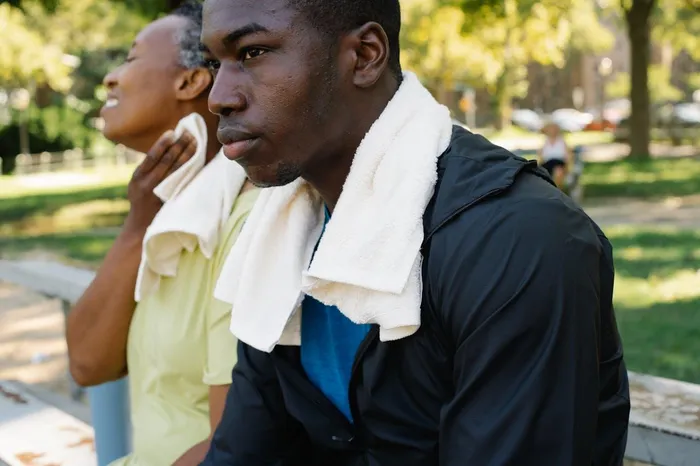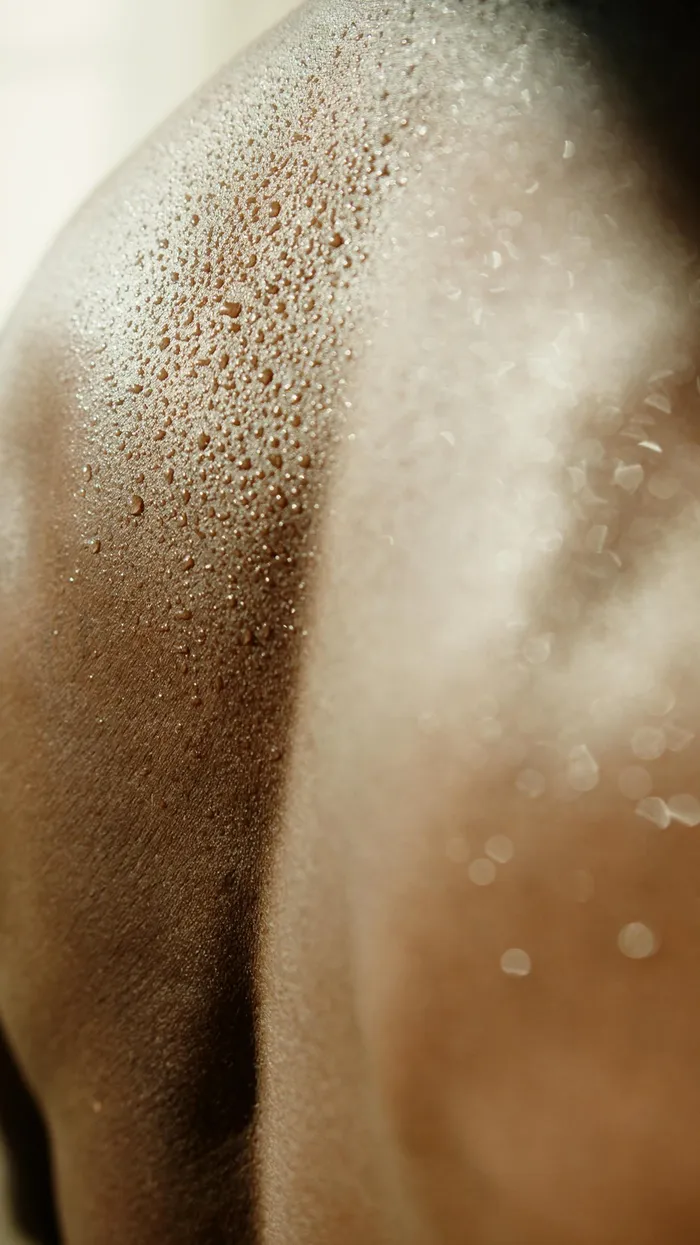Why stress sweat packs a pungent punch: the science behind the stink
HEALTH

According to Unilever’s research, humans have two main types of sweat glands: eccrine and apocrine.
Image: Liliana Drew /pexels
Sweat. It’s the universal language of summer afternoons, power outages, taxi rides, and even anxious moments before a big presentation at work.
But have you ever stopped to think about how sweat isn’t just sweat?
From a lifestyle and health perspective, the different types of sweat and the body odour (BO) they produce tell a fascinating story about our modern lives.
Not all sweat is created equal
According to Unilever’s research, humans have two main types of sweat glands: eccrine and apocrine.
Eccrine glands are found all over your body and mostly produce a watery, salty sweat that helps cool you down during a hot summer day or a brisk walk down the promenade.
This sweat is usually odourless because it doesn’t contain much more than water and salt.
But then there are the apocrine glands, which become active from puberty (remember that first high school dance?). These are mostly found in your armpits and groin, and they produce a thicker, nutrient-rich sweat.

Sweat, a uniquely human physiological process, reveals information about our health, stress levels, and social bonds.
Image: Anna Nekrashevich /pexels
This type of sweat is the real culprit behind BO, especially during stressful moments. The science behind stress sweat (and why it smells worse).
Ever noticed how you get a different kind of sweaty before a big meeting? That’s your stress sweat kicking in. When you’re stressed, your body releases hormones like adrenaline and cortisol, which trigger your apocrine glands.
As explained by dermatologist Dr Cynthia Bailey in an interview with MindBodyGreen, the “greater the fear, the greater the sweat.”
But why does stress sweat smell so much worse than gym sweat? Apocrine sweat is packed with proteins and fatty acids, a veritable buffet for the bacteria that live on your skin. When bacteria break down this sweat, they produce the distinctive (and sometimes pungent) body odour we all dread.
Stress sweat is about more than just personal discomfort. According to evolutionary biology, these “chemosignals” may have helped our ancestors warn each other about danger.
Research cited by MindBodyGreen suggests that people can sense fear or stress in others’ sweat, sometimes becoming anxious. Imagine your body warning your friends at a campsite that danger is nearby or, in modern terms, that your boss is on the way!
Your sweat story is as unique as you are, shaped by South Africa’s diverse climate and rich cultural tapestry. Environmental conditions not only affect our sweating but also influence how we manage body odour.
For many, daily use of deodorants and antiperspirants is second nature, while there’s a growing shift towards natural remedies and indigenous botanicals like rooibos, buchu, and marula oil, known for their antibacterial and soothing properties.
A range of factors can make BO better or worse:
- Diet: Spicy foods, garlic, and onions are notorious for making sweat smell stronger.
- Hygiene: Regular washing helps, but over-washing can disrupt the skin’s natural bacterial balance.
- Clothing: Synthetic fabrics trap sweat, while cotton and natural fibres allow skin to breathe.
- Health conditions: Diabetes, thyroid issues, and certain medications can change the way your sweat smells.
- Hormones: Adolescents and pregnant women may notice changes in body odour due to shifting hormone levels.
Sweat is part of what makes us human. It tells a story about our health, our stress, and even our social connections.
Related Topics:
